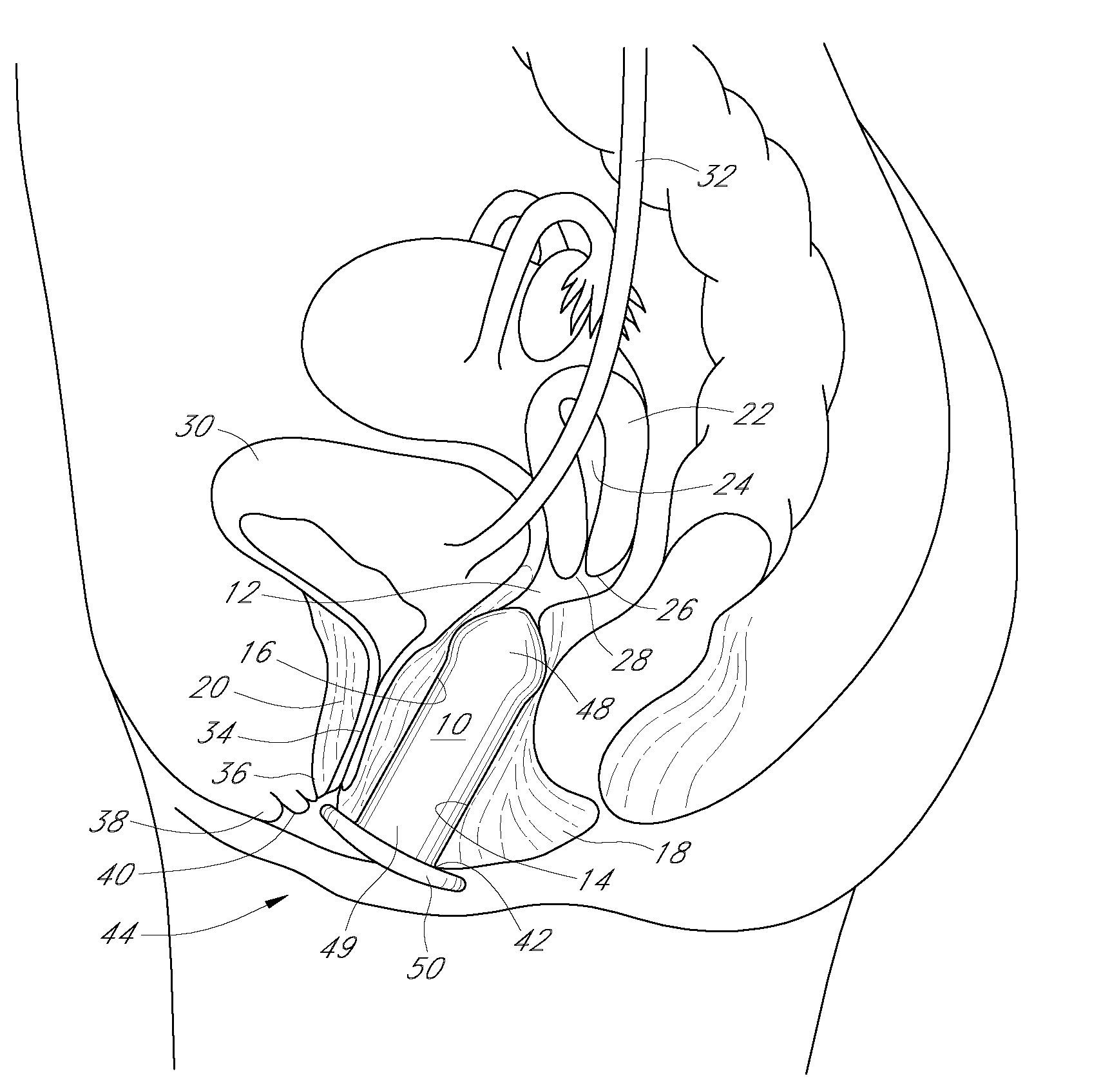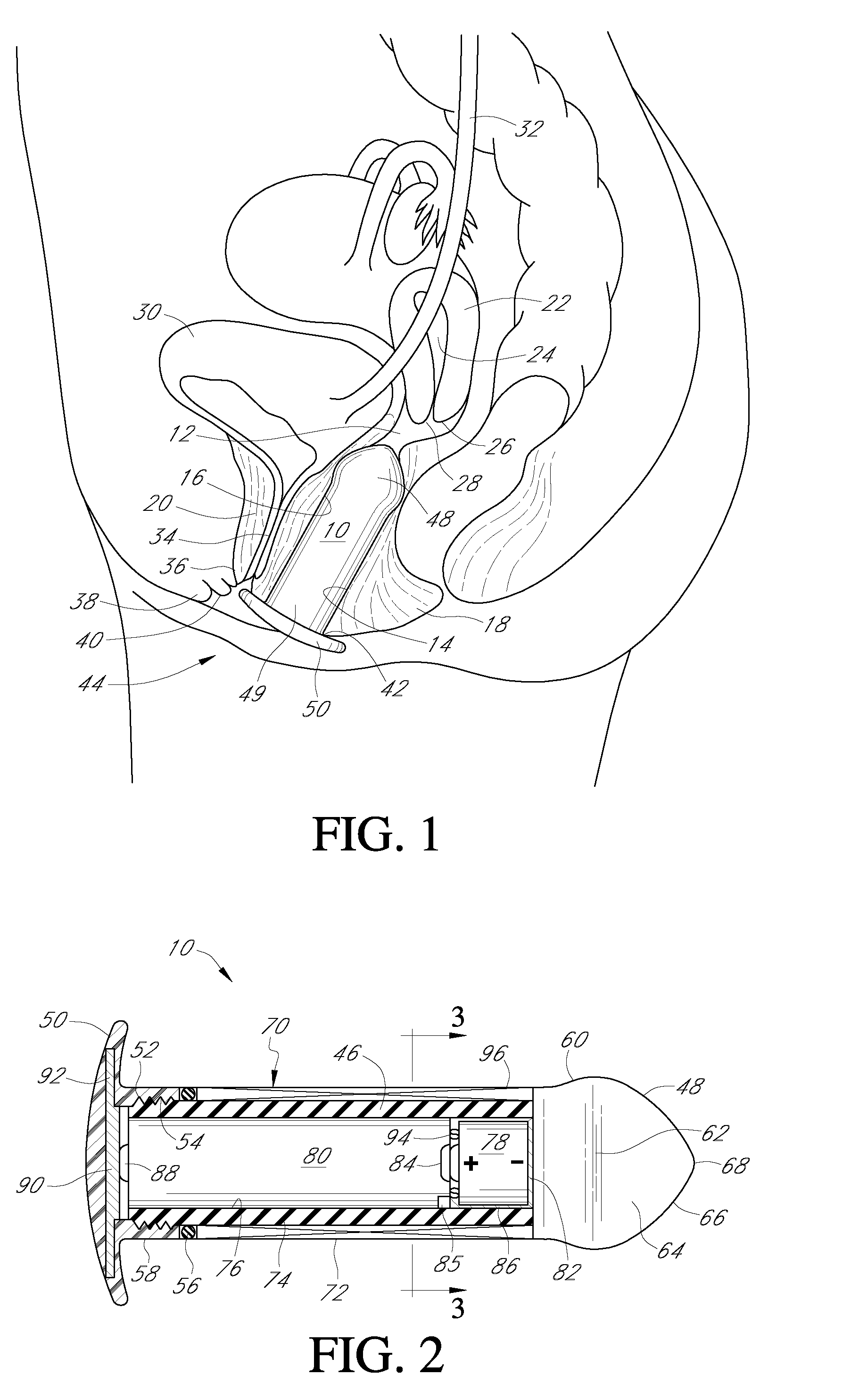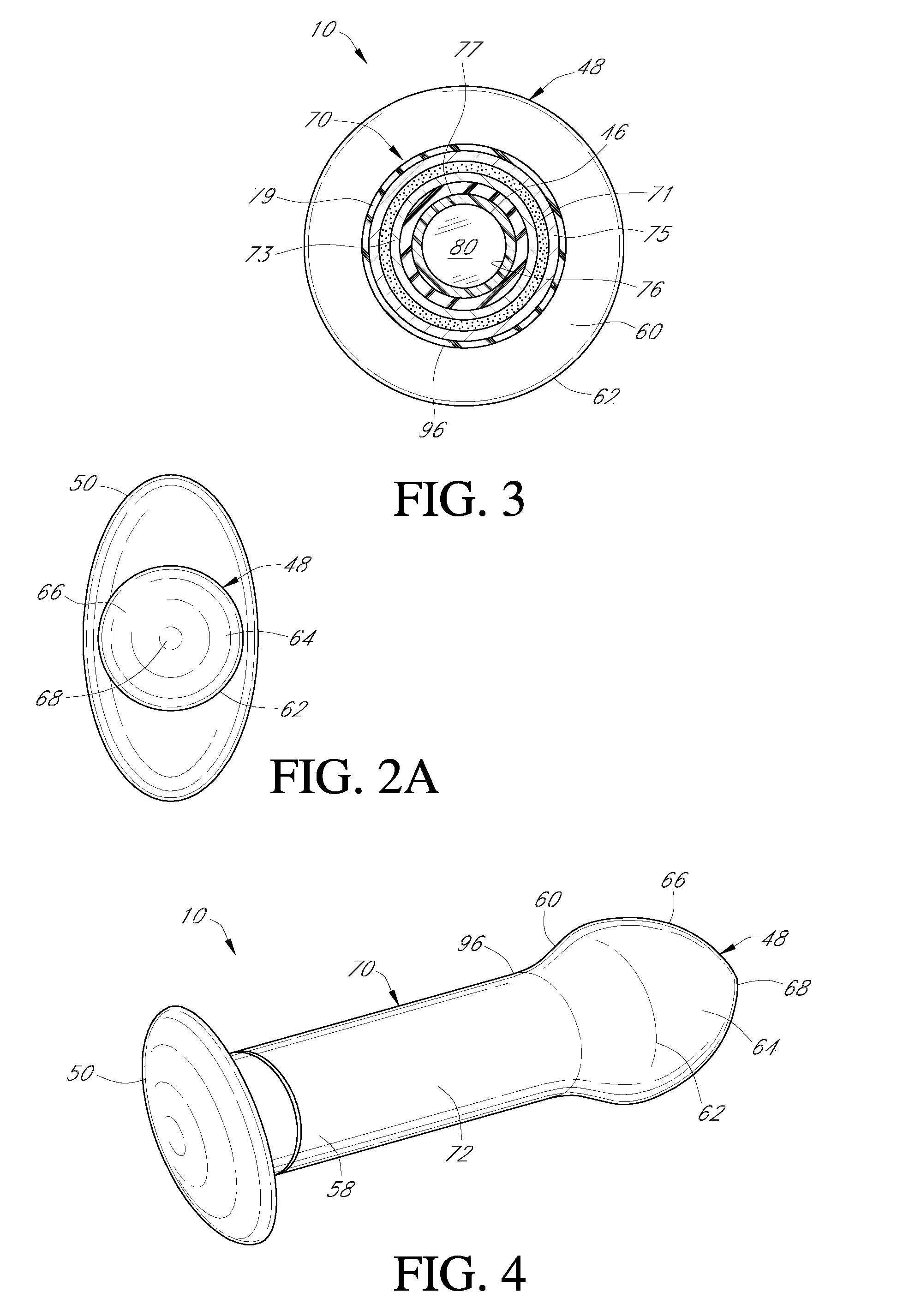Multi-mode pelvic exercise probe
a pelvic floor and exercise probe technology, applied in the field of multi-mode pelvic exercise probes, can solve the problems of difficult and painful vaginal penetration, damage or weakened lower pelvic muscles,
- Summary
- Abstract
- Description
- Claims
- Application Information
AI Technical Summary
Benefits of technology
Problems solved by technology
Method used
Image
Examples
Embodiment Construction
[0054]The specification that follows describes the preferred embodiments with reference to portions of the female pelvic anatomy that are shown in FIG. 1, and with reference to the lithotomy position indicted in FIG. 15. The perineometer probe 10 of the present invention is inserted in the vaginal cavity 12 while the patient is reclining in the slightly elevated lithotomy position. In that position, the patient is lying on her back, knees raised, with her head slightly elevated relative to the pelvic region. Her torso is on an approximate 30 degree angle with respect to horizontal, which results in a half-sitting position, which is the preferred position for pelvic exercise training.
[0055]Referring now to FIG. 1 and FIG. 15, the perineometer probe 10 is positioned within the vaginal cavity 12 for reacting pressure forces applied by pelvic muscle contractions. The lower wall 14 and the upper wall 16 of the vagina are connected to muscles, tissues, and nerves, that are indicated gener...
PUM
 Login to View More
Login to View More Abstract
Description
Claims
Application Information
 Login to View More
Login to View More - R&D
- Intellectual Property
- Life Sciences
- Materials
- Tech Scout
- Unparalleled Data Quality
- Higher Quality Content
- 60% Fewer Hallucinations
Browse by: Latest US Patents, China's latest patents, Technical Efficacy Thesaurus, Application Domain, Technology Topic, Popular Technical Reports.
© 2025 PatSnap. All rights reserved.Legal|Privacy policy|Modern Slavery Act Transparency Statement|Sitemap|About US| Contact US: help@patsnap.com



